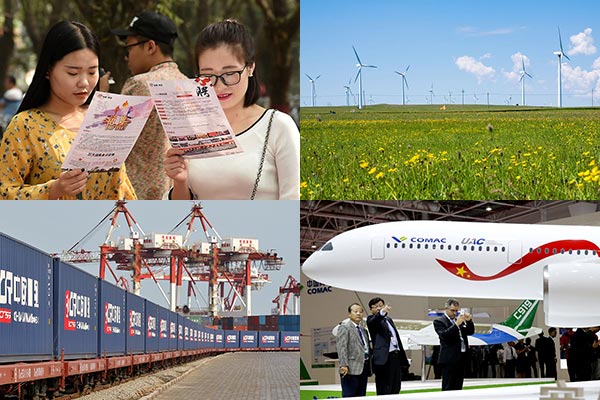PPP rules tightened to reduce fiscal risk
China will reinforce regulations to monitor public-private partnership (PPP) projects as part of its efforts to prevent illegal borrowing by local governments, said a senior official with the nation's top economic regulator.
"Strengthened supervision over local governments' financing for PPP projects, which started earlier this year, marks a new starting point (in PPP management)," said Han Zhifeng, deputy head of the fixed-asset investment department of the National Development and Reform Commission.
Such strengthening of supervision will be a long-term measure, he told China Daily. "Local governments should adapt to long-term strengthening of oversight."
Han also said risk control measures will be extended to specific PPP projects in the future. "Control of risks should be improved at an early phase and carried out on a case-by-case basis," he said.
PPP is an effective way to engage in private investment to help local development, but some governments have used the scheme as a disguised way to borrow from the banks, which will add to the already troublesome pile-up of local government debts and increase the country's overall financial risks.
It will become a long-term task to control local governments' debt risks, according to a statement released after the five-yearly National Financial Work Conference held in July.
In June, six top government regulatory bodies co-issued a guideline on ramping up efforts to rein in financial risks in local government financing.
The statement specified that local governments will be prohibited to provide guarantee for securing fixed returns for enterprises and lenders involved in PPP projects.
Local governments are not allowed to shoulder responsibility for reimbursement for PPP projects or use fiscal income to repay debts, according to the statement.
Experts said pushing for a clearer boundary of responsibilities shouldered by local governments at beginning stage will be helpful to curb risks that could arise from PPP projects.
"The PPP contracts should clarify the rights and obligations of local governments and private investors," said Xu Dongsheng, a manager of Beijing Enterprises Water Group. "It should not be mixed up with government guarantee for fixed returns."
"Without clear rules, uncertainties that emerge during implementation of projects will cause disputes," he said.
Clear boundary will also be helpful to boost private sector participation, according to Wei Jianguo, vice-president of China Center for International Economic Exchanges.
Experts said that the country is facing a severe challenge of tackling financial risks as such risks are rising in some areas, such as property market bubble and high debt levels, including local government debts.
China should improve its monetary policy management, squeeze out insolvent enterprises, and strengthen financial regulatory framework to prevent the eruption of systemic financial risks, said Huang Yiping, an economics professor of Peking University and a central bank advisor, in an article of the International Economic Review journal, published by the Chinese Academy of Social Sciences.
Xin Zhiming contributed to the story.



















